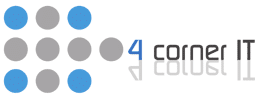While reliable technology support has always been important, the sudden and widespread adoption of remote work by so many businesses has made it an essential component for an organization’s success. However, for your team members to have technology that continues to serve them as they do so, it is important that they are able to receive the same support as they would in the office. To accomplish this, remote monitoring and maintenance has proven to be a critical resource, providing a litany of benefits. Let’s go into what these benefits are, and how they take shape through the implementation of this method of receiving support.
What is Remote Monitoring and Maintenance (RMM)?
As a managed service provider, a considerable portion of our responsibility is to be sure that our clients’ technology is operating as it should. To do so, a methodology known as remote monitoring and maintenance is employed.
RMM solutions give our team the capability to keep track of our clients’ technology solutions from a distance, thereby enabling us to diagnose, mitigate, and resolve many IT issues that would otherwise cause operational headaches (or worse). As such, we can deliver considerable value to those we serve. With our real-time monitoring tools, many issues can be detected before their impacts become noticeable.
This, in turn, translates to considerable benefits. Let’s go over these benefits now, to demonstrate how RMM supplements a business’ operations:
Proactive Maintenance, and All That Comes With It
Our services as an MSP are all about embracing proactivity whenever the opportunity arises, and remote monitoring and maintenance is the perfect vehicle to this very outcome. Our solutions will keep an eye on your infrastructure, alerting our team at the first sign of an issue and enabling us to solve it—often before you or your team members realize that an issue is present.
In addition to active issue resolution, this proactive maintenance means that we’ll also keep track of any updates that are available for your solutions and apply them appropriately.
Minimized Downtime
As any business owner knows, “downtime” is technically a four-letter word in the workplace. Depending on the severity of the event, even a brief instance can incur significant financial costs. Thanks to the inherent proactivity of RMM, most downtime events can be avoided (and their financial repercussions sidestepped) so that your business processes are effectively untouched by any issues.
Improved Security
RMM can also help you to keep your business better protected against threats. One of the primary reasons that cyberattacks can get to be so severe is that many are not detected until long after the fact.
However, with remote monitoring in place, our team of professionals can be alerted of even the smallest sign of a potential breach. This puts us in place to resolve the underlying problem and keep your business safe.
Ensured Productivity
Let’s jump back to the impacts of minimizing downtime for a moment. One of the most important, and most prioritized, aspects in any business is the level of productivity that can be maintained. Eliminating your downtime is one of the few ways to do so that can have a 100 percent impact on your productivity. The fewer issues your employees encounter, the more they will be able to accomplish—something that our proactive maintenance facilitates.
Streamlined Cost of Ownership
Everyone likes to save money, right? Unfortunately, a lot of the technology that a business relies on can swiftly cause costs to rise expeditiously. A lot of this is due to the combination of maintenance needs after the fact, and the downtime that is incurred in the meantime.
However, by avoiding this by means of proactive maintenance through a predictable and budgeted service, these costs can be reduced significantly, helping your business that much more.
If you’re interested in finding out more about the benefits that remote monitoring and maintenance provide—or you’d like to experience them for yourself—give 4Corner IT a call at (954) 474-2204.


You got my attention when you said that downtime can incur significant financial costs, so it is best to have your systems monitored and maintained. This is a helpful tip for businesses that would need to continue working to keep the business going. I could imagine how a remote IT company can ensure that downtime would be prevented to ensure progressive productivity of all the employees.